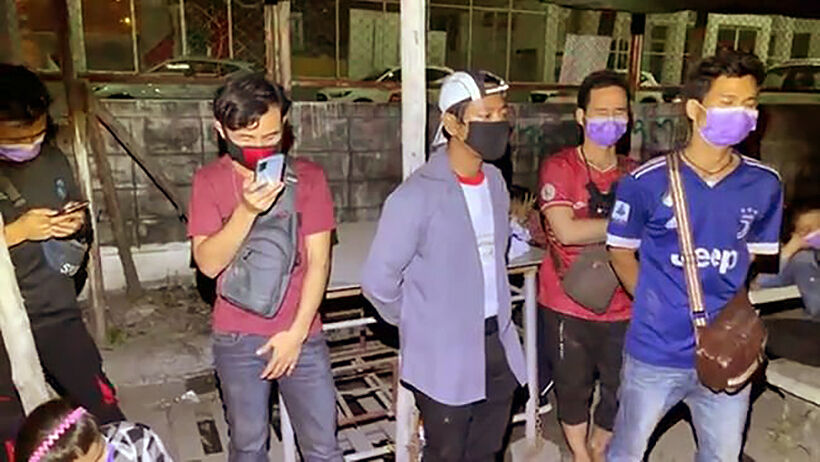Thai social media gets nasty as old animosities resurface over the Burmese migrants

A Covid-19 outbreak in Samut Sakhon, centred around a seafood market and the local fishing industry’s Burmese migrant population, has unbottled a new wave of anti-Burmese sentiment in Thai social media, never bubbling far beneath the surface.
The revelations of an outbreak of some 1,000+ positive infections has opened a long-standing wound between the two countries, including straight out online hate speech as well as important questions over the treatment of the millions of Burmese migrant workers that are recruited by Thai companies wanting cheap labour.
The CCSA yesterday announced that there won’t be any national lockdown in response to the Samut Sakhon cluster, but says that Covid-19 control zoning is being introduced and continually updated to reflect the changing situation. New Year celebrations have been mostly cancelled around the country but may be allowed to continue “only under strict conditions”.
You can find out more about the colour coding in yesterday’s Thailand News Today.
The Mahachai shrimp market at Samut Sakhon, the hotzone in the current cluster, is only 35 kilometres from central Bangkok.
Comments have been flying thick and fast online as people respond to the outbreak. Many of the comments savagely blamed the Burmese migrant worker population who form the vast majority of the workforce in the area. Facebook has already removed hundreds of comments for violating the platform’s hate speech policies. Twitter says it is “looking into the issue” but has blocked several channels over hate speech directed towards the Burmese migrant workers.
The Social Media Monitoring for Peace group, and independent NGO, says it found 100s of comments which it described as hate speech on the YouTube, Facebook and Twitter platforms.
The Thaiger has also removed a number of incendiary comments from its platforms aver the issue.
In a video produced this week The Thaiger, without naming specific companies, tried to move the focus on the migrant workers back to the companies that employ them, the issues of human trafficking, slave labour in Thailand’s fishing industry and the corrupt officials that are involved in the trafficking and exploitation of cheap labour from Myanmar.
Sompong Srakaew represents a Thai group helping migrant workers, the Labor Protection Network, Speaking to the Bangkok Post he said… “Myanmar people are being labelled for spreading Covid-19, but the virus doesn’t discriminate.”
“Shifting sentiment had real consequences… workers from Myanmar, previously known as Burma, being barred from buses, motorcycle taxis and offices.”
“Burma people infect Thailand and cause all our problem.”
“Close the Burma border and shoot any Burma people who cross over.”
“Wherever you see Myanmar people, shoot them down.”
“Again the Burmese. Why always the Burma people come into Thailand and cause troubles.”
But there’s also been an outpouring of sympathy for the migrant workers with many Thais and foreigners recognising the issues behind the outbreak and pleading with people not to vent their anger at the infected workers who are simply trying to find work.
On Tuesday a group of workers ended up stranded on the side of a highway near Bangkok after their employer allegedly told them to get in a van to go get tested for Covid-19, then dumped them along the way. Daily News reported that an employer “dumped” a group of 24 Burmese migrant workers at the side of a highway in Samut Prakan’s Bang Plee area, just outside Bangkok. The Ton News Facebook page even posted live videos of the immigration police confronting the group.
Thailand has 1.6 million Burmese workers, officially. But the actual number is anecdotally recognised to be 2 – 3 times higher. The Thai/Myanmar border is over 2,000 kilometres and even as recently as last week the Thai Army admitted that the leaky border is impossible to police.
Although Thailand has has a long-standing tolerance of foreign visitors, there’s also a historic enmity between the Thais and Burmese which stems from the 18th-century destruction of the Ayutthaya capital of Old Siam by Burmese invaders. The Thai capital was then moved to its current location in Bangkok but the animosity has festered ever since in literature, popular culture and school text books.
Latest Thailand News
Follow The Thaiger on Google News:


























